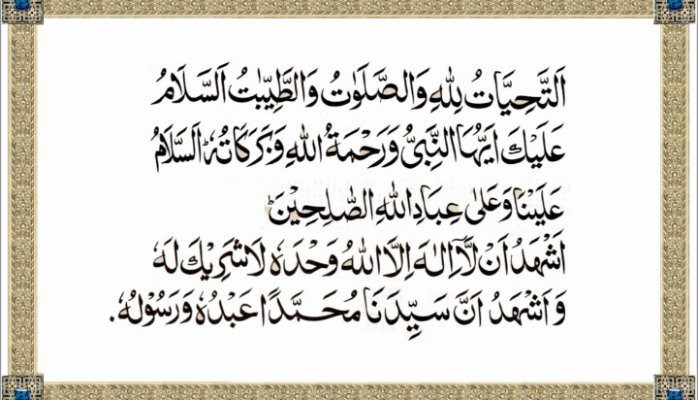
Innallaha Wa Mala Ikatahu
Introduction to the Phrase
The Arabic phrase “innallaha wa mala ikatahu” is rich with meaning and depth. Translated literally, it means “Indeed, Allah and His angels.” This simple yet profound phrase points to important Islamic theological concepts regarding the nature of God, the role of angels, and the relationship between the divine and the created realms.
إِنَّ اللَّهَ وَمَلَائِكَتَهُ يُصَلُّونَ عَلَى النَّبِيِّ ۚ يَا أَيُّهَا الَّذِينَ آمَنُوا صَلُّوا عَلَيْهِ وَسَلِّمُوا تَسْلِيمًا
[ الأحزاب: 56]
In this article, Qiratul Quran will explore the background, meaning, and significance of this phrase in detail. Understanding the phrase “innallaha wa mala ikatahu” can give insight into foundational aspects of Islamic belief and practice. And the other part.
Yusalloona AAala Annabiyyi Ya Ayyuha Allatheena Amanoo Salloo AAalayhi Wsallimo Taslima
The Arabic phrase “yusalloona AAala annabiyyi ya ayyuha allatheena amanoo salloo AAalayhi” has significance in Islam. Let’s explore the meaning and background:
The phrase translates to:
“Blessings and peace be upon the Prophet, O you who have believed. Send blessings upon him.”
This verse comes from the Quran, Surah Al-Ahzab, verse 56. It is a command from Allah (God) directing believers to invoke blessings and salutations upon the Prophet Muhammad S.A.W.
Specifically, it instructs Muslims to recite “ṣalawāt” (special prayers and phrases sending blessings) upon the Prophet whenever he is mentioned. This verse orders believers to honor and praise Prophet Muhammad S.A.W.
Some key points on the verse:
- “yusalloona AAala annabiyyi” refers to continually invoking prayers and peace upon the Prophet S.A.W.
- “ya ayyuha allatheena amanoo” addresses all believers with faith.
- “sallou AAalayhi” is the command to send prayers and blessings to him.
Sending blessings and salutations is regarded as a form of worship and dhikr (remembrance of God). Each time Muslims recite prayers on Muhammad, they gain rewards and blessings from Allah.
Reciting this verse and “Salawat” on the Prophet is very common in Muslim rituals and worship, like during the call to prayer, public events, or even casually in conversation when hearing or saying Prophet Muhammad’s name. It demonstrates love and devotion to the Prophet.
Meaning and Context
God in Islam
To fully comprehend the meaning of “innallaha wa mala ikatahu,” we must first understand the Islamic conception of God. According to Islam, God—called Allah in Arabic—is the all-powerful, all-knowing Creator and Sustainer of the universe. Although infinitely above creation, He is constantly involved in the affairs of the world.
Some key attributes of Allah emphasized in the Quran and Islamic theology include:
- Oneness and uniqueness.
- No human form or limitations.
- Eternal and absolute.
- All-hearing and all-seeing.
- Source of justice and mercy.
Thus, the phrase begins by acknowledging the supreme majesty and rule of Allah over all creation. This establishes the fundamental orientation toward and dependency on God that characterizes the Islamic worldview.
Angels in Islam
The second component of the phrase references mala ikatahu—the angels of Allah. Angels play an extremely important theological role in Islam. They are beings created from light who unceasingly worship God and fulfill specific functions as servants and messengers of Allah.
Angels carry out various duties such as:
- Protecting and assisting believers.
- Recording good and bad deeds.
- Communicating divine revelation.
- Caring for the natural world.
Some angels mentioned by name in the Quran include Jibreel (Gabriel), the angel entrusted to communicate revelation to prophets, and Mikaeel (Michael).
Thus, pairing God with the angels highlights how Allah utilizes these divinely created beings to administer his kingdom, order the cosmos, and connect with human mortals.
Relationship Between Allah and the Angels
Critically, in “innallaha wa mala ikatahu,” the name of Allah comes first while the angels come second. This mirrors the broader theological hierarchy in Islam where one God presides over all creation. It emphasizes how angels operate under Allah’s supreme authority to carry out his divine will.
In fact, a defining quality of angels in Islam is their absolute servitude and obedience to God. They are only empowered to act based on Allah’s direction and permission. Quranic verses, such as 16:49-50, characterize angels as dutiful “slaves” or servants of God without free will: “To Him belongs whosoever is in the heavens and on earth. And those who are near Him (i.e. the angels) are not too proud to worship Him…They fear their Lord above them, and they do whatever they are commanded.”
Therefore, “innallaha wa mala ikatahu” succinctly yet beautifully captures a chain of command flowing down from the all-powerful Creator to spiritual agents appointed to specific functions in the created order.
Occurrences and Usage
Beyond abstract theological principles, what does it look like to invoke “innallaha wa mala ikatahu” and why might Muslims repeat this phrase? Exploring some practical contexts where these words appear provides further insight into their relevance.
Recitations and Remembrances
In daily life, pious Muslims engage in various litanies and recitations to remember Allah and call upon Him. These include reciting key Quranic verses, chapters, and phrases which request protection, seeking help, expressing gratitude to God, or simply proclaiming his glory.
The words “innallaha wa mala ikatahui” themselves comprise an important litany Muslims routinely recite for protection and religious blessing. By sincerely repeating this phrase, Muslims affirm the centrality of Allah and the unseen role of angels in receiving divine assistance.
In the Quran
While not mentioned verbatim, the Quran includes many verses substantively echoing the meaning of “innallaha wa mala ikatahu” to emphasize Allah’s sovereign rule. For example:
3:26 Say, “O Allah, Owner of Sovereignty…
35:15 O mankind, you are those in need of Allah, while Allah is the Free of need, the Praiseworthy. 66:6 O you who have believed, protect yourselves and your families from a Fire whose fuel is people and stones, over which are [appointed] angels, harsh and severe; they obey Allah in what He commands them but do what they are commanded.
These verses reinforce key theological themes about God’s omnipotence and angels being divinely appointed to specific duties.
Friday Congregational Prayer
Every week during the primary communal Friday prayer, Muslims worldwide recite Surah al-Hashr (Chapter 59)• Verse 22-24 readings:
“He is Allah, other than whom there is no deity, Knower of the unseen and….the angels [as well] give him high esteem. And those who are with your Lord – no one can be proud before Him”
This Quranic passage—part of larger chapter believers stringently recite on Fridays—essentially delivers the same message as “innallaha wa malai ikatahu.” Thus, this phrase neatly summarizes a key idea ritually reinforced during the primary Islamic congregational worship each week.
Theological and Spiritual Significance
Now that we have traced the meaning of “innallaha wa mala ikatahu” as well as where it appears, we can better appreciate its profound theological and spiritual importance within Islam.
Affirmation of Faith and Belief
At its core, this concise yet emphatic phrase underpins and encapsulates foundational Islamic beliefs about the divine order governing the universe. By sincerely uttering these words, Muslims give voice to core theology regarding God and angels that routinized declarations of faith—both ritualistic and personal—revolve around.
In essence, remembering “innallaha wa mala ikatahu” represents pronouncing the Shahada and bearing witness to the highest unseen realities directing created affairs.
Protection, Blessing, and Assistance
Additionally, reciting this phrase serves as a potent petition for divine help and protection. Sincere invocation of Allah by name asks Him to respond with blessing and assistance. Pairing God with angels highlights how Allah may dispatch angelic emissaries to aid believers in times of need and distress.
Therefore, Muslims repeat these words seeking refuge in their Creator and hoping unseen servants empowered by Allah will deliver comfort, sustenance, and safety.
Hope and Optimism
More broadly, affirming “innallaha wa mala ikatahu” nurtures hope and optimism about the future. Things might presently be unclear, difficult or discouraging. However, calling on the Supreme Being who commands the angels—agents assigned to administer our worldly matters—inspires positive expectation.
Believers gain confidence realizing life’s challenges unfold under divine supervision executed through Allah’s dispatched angels. Recognizing God’s overarching sovereignty and control inspires patience when faced with tribulation and uncertainty.
Conclusion
The concise yet profound phrase “innallaha wa mala ikatahu”—“Indeed, Allah and His angels”—alludes to tremendously meaningful theological concepts within Islam. By mentioning Allah, it directs the hearts of believers toward the all-powerful Creator. Adding angels references how this unseen realm assists Allah and connects with our world to implement His will.
Quranic verse captures the importance and obligation for Muslims to praise and honor the legacy of the Prophet Muhammad S.A.W through invoking prayers and sending blessings upon him. Its recitation connects believers to the Prophet while also receiving divine rewards.
Much resides within these few words. Whether recited ritually, included in spiritual texts, or uttered spontaneously when in need, this phrase anchors the soul of Muslims in fundamental beliefs about the nature of their relationship to the divine. Repeating “innallaha wa mala ikatahu” revives and renews this connection through the tacit proclamation of theological truth paired with hope for spiritual support flowing through the unseen.





